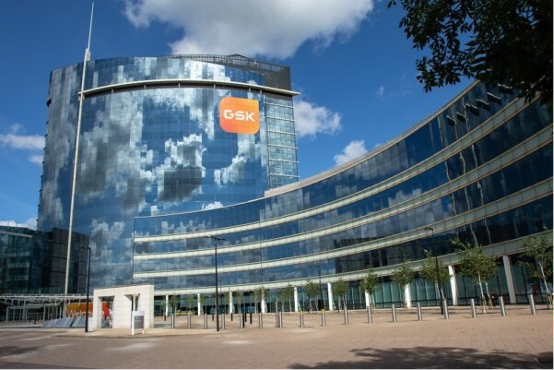At JPM, Top GSK Cancer Executive Talks Drug Targets and Oncology Strategy
January 11, 2024
Source: drugdu
 508
508
Though GSK divested much of its oncology assets to Novartis in 2015, the company has built it back through a internal R&D and business development deals. GSK Senior Vice President, Global Head of Oncology, R&D Hesham Abdullah explained the company’s evolving cancer strategy in an interview during the J.P. Morgan Healthcare Conference in San Francisco.
By FRANK VINLUAN
 GSK committed $270 million up front in recent months to gain access to early-stage assets in the class of cancer therapies known as antibody drug conjugates, or ADCs. The deals are part of a broad industry to acquire assets in this therapeutic modality, GSK’s top cancer executive Hesham Abdullah acknowledges. But for GSK, the deals are just one part of an evolving oncology strategy.
GSK committed $270 million up front in recent months to gain access to early-stage assets in the class of cancer therapies known as antibody drug conjugates, or ADCs. The deals are part of a broad industry to acquire assets in this therapeutic modality, GSK’s top cancer executive Hesham Abdullah acknowledges. But for GSK, the deals are just one part of an evolving oncology strategy.
The strategy has been years in the making. In 2015, GSK divested its oncology business, which Novartis acquired for $16 billion. Abdullah, who is GSK’s senior vice president, global head of oncology, research and development, said the drugmaker still retained its research infrastructure and early phase development capability in cancer. In 2019, GSK decided to get back into the field. Abdullah characterizes it as a journey leading to the company’s reemergence in oncology.
The therapeutic modalities that GSK is focusing on now include immuno-oncology, synthetic lethality and tumor cell targeting, Abdullah told MedCity News in an interview during the J.P. Morgan Healthcare Conference in San Francisco. Within tumor cell targeting, the company is focusing on ADCs, small molecules, and T cell engagers. Regarding disease areas, Abdullah said the company is prioritizing hematological malignancies, including multiple myeloma and myelofibrosis. Gynecological cancers are another area of focus along with lung cancer and other solid tumors.
“These are areas of disease segments where we see a significant unmet need, but also think that we have an asset, technology, or capability that allows us to provide what potentially could be a big therapeutic advantage or significant therapeutic advantage over existing standard of care,” Abdullah said.
As an example, he pointed to Jemperli, which is approved for treating advanced endometrial cancer. During the annual meeting of the American Society of Clinical Oncology in 2022, this GSK immunotherapy made headlines with data from an investigator-led study at Memorial Sloan Kettering Cancer Center showing a 100% clinical response rate in 12 patients with a particular type of rectal cancer. Abdullah said the most recent update shows the 100% response rate continues in what is now a total of 23 patients.
Industrywide, cancer drug R&D is moving toward more targeted therapies and precision medicines that offer patients a better benefit/risk profile, Abdullah said. ADCs are part of that trend. One of the challenges with ADCs is achieving the right therapeutic index, the range of doses that offers efficacy without causing unacceptable safety problems. ADC technology has gotten better at addressing the issues around therapeutic index and off target effects. And GSK sees that progress exemplified in the two ADC deals with Hansoh Pharma.
The Hansoh ADCs check off several boxes for GSK. Abdullah said GSK believes the technology that produced these therapeutic candidates is best in class, or at least on par with the leading platforms in the ADC space. He pointed to preliminary clinical data showing that these therapies hit their cancer targets relative to healthy tissue. Also, one of the Hansoh ADCs that GSK in-licensed addresses B7-H4, a target associated with gynecological cancers, one of the therapeutic areas of interest for GSK. Furthermore, this ADC offers the potential for combinations with other drugs in the GSK portfolio, such as Jemperli, Abdullah said.
GSK’s cancer strategy will continue to be a mix of internally developed assets along with technologies from outside the company, Abdullah said. Blenrep, a multiple myeloma drug that won accelerated approval in 2020, was developed in-house. GSK withdrew the drug from the market in 2022 after it failed its confirmatory study. But the company recently reported new Phase 3 data showing it beat Johnson & Johnson’s Darzalex in a head-to-head test.
Other GSK assets have come through deals and partnerships. Ojjaara, a small molecule drug approved in September for the treatment of myelofibrosis, came from GSK’s $1.9 billion acquisition of Sierra Oncology in 2022. In synthetic lethality, where drugs knock down two genes to kill a cancer cell, GSK has an ongoing research alliance with Ideaya Biosciences. One of the partnered programs is in Phase 1 testing in combination with GSK drug Zejula as a treatment for solid tumors; a second program is on track for an investigational new drug application in gastrointestinal cancers.
“We see across the industry right now, some of that innovation has to be accessed externally,” Abdullah said. “So you have to also think about the external world where that’s happening, whether it’s through academic collaborators, whether it be through the biotech space—we’re here at JPM—or other mid-or large-sized pharma.”
Photo by GSK
By editorRead more on
- A New Era Dawns February 26, 2026
- Junshi Biosciences and Antengene Corporation Forge Clinical Research Cooperation in Oncology February 26, 2026
- Qilu Pharmaceutical achieves another breakthrough in internationalization, with its blockbuster anti-tumor drug bevacizumab approved for marketing in the UK. February 26, 2026
- Etoposide Injection and Fluorouracil Injection Receive FDA Approval in the United States February 26, 2026
- Jikeqin’s marketing application accepted by the drug regulatory authority February 26, 2026
your submission has already been received.
OK
Subscribe
Please enter a valid Email address!
Submit
The most relevant industry news & insight will be sent to you every two weeks.



